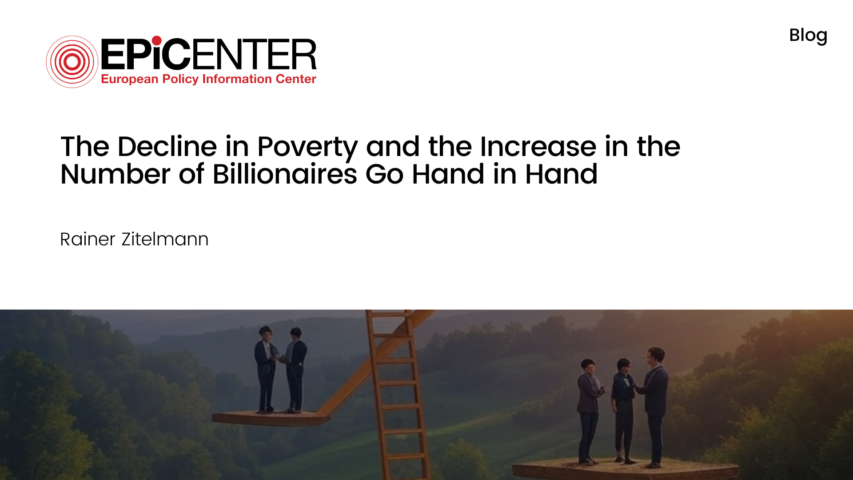The Decline in Poverty and the Increase in the Number of Billionaires Go Hand in Hand

The Decline in Poverty and the Increase in the Number of Billionaires Go Hand in Hand
Rainer Zitelmann // 7 December 2021
The Index of Economic Freedom, which is compiled every year by the Heritage Foundation, shows that the most capitalist countries have an average per capita GDP of $71,576. That compares with $47,706 for the world’s “predominantly free” countries. At the other end of the scale, the “mostly unfree” and the “repressed” countries have a per capita GDP of just $6,834 and $7,163 dollars, respectively.
The United Nations’ Global Multidimensional Poverty Index (MPI) measures various forms of poverty (including health, standard of living and education) in 80 developing countries. If you compare the UN’s MPI with the Index of Economic Freedom, you see that 35.3 percent of the populations of the “mostly unfree” developing countries live in “multidimensional poverty,” compared with only 7.9 percent of people in “mostly free” developing countries.
Before the dawn of capitalism roughly 200 years ago, 90% of the global population was living in extreme poverty. Today, that figure has fallen to just 10%. And it is particularly interesting that half of this decline has occurred over the last 35 years, as Steven Pinker demonstrates in his impressive book Enlightenment Now.
And these are precisely the same 35 years in which, according to the leftist French economist Thomas Piketty, global inequality has surged. Above all, anti-capitalists complain that the rich are becoming ever richer and that there are more and more billionaires. Indeed, the number of billionaires has risen sharply over the past 30 years. In the year 2000, there were only 470 billionaires in the world; today there are 2,755 according to Forbes. What capitalism’s critics fail to acknowledge is that the increase in the number of billionaires around the world and the decrease in the number of people living in poverty are two sides of the same coin: capitalist globalisation.
Whenever anyone asks what triggered the incredible turnaround in the fight against global poverty, then I have a simple answer: The death of Mao Zedong on 9 September 1976. As late as the end of the 1950s, 45 million people died as a result of Mao’s “Great Leap Forward” experiment in China. I speak on this subject all over the world and, whenever I ask my audiences about the human cost of Mao’s socialist revolution, I find that hardly anyone has heard about it in school. Young people have heard a lot about “the evils of capitalism”, but they’ve not been told about “the evils of socialism.”
At no other point in history have so many people escaped bitter poverty in such a short time as in China. According to official World Bank figures, the percentage of extremely poor people in China in 1981 stood at 88.3%. By 1990, this had fallen to 66.2%. And today less then 0,5% the Chinese population is living in extreme poverty. In this period, the number of poor people in China fell from 878 million to less than ten million.
Under Mao, China was not home to a single billionaire. Today there are 769 billionaires in China, in the U.S. there are 724 billionaires. All anti-capitalists are zero-sum believers. They are convinced that the poor are only poor because the rich have taken something from them. If this zero-sum theory were correct, recent developments would be impossible. But zero-sum beliefs are wrong: The sharp decline in poverty and the simultaneous dramatic increase in the number of billionaires go entirely hand in hand.
Perhaps it is surprising to take the example of China to prove the superiority of capitalism. Is China even a capitalist country? Doesn’t the state still play a huge role in all areas of life in China? Of course, China is far from being a purely capitalist country. The state still exercises far too much control for that to be the case. But all the progress in China over the past 40 years is due entirely to the fact that the Chinese have progressively introduced the principles of free markets and private property ownership – more capitalism.
This article was first published on the IEA blog. Dr Rainer Zitelmann is the author of The Power of Capitalism.
EPICENTER publications and contributions from our member think tanks are designed to promote the discussion of economic issues and the role of markets in solving economic and social problems. As with all EPICENTER publications, the views expressed here are those of the author and not EPICENTER or its member think tanks (which have no corporate view).



